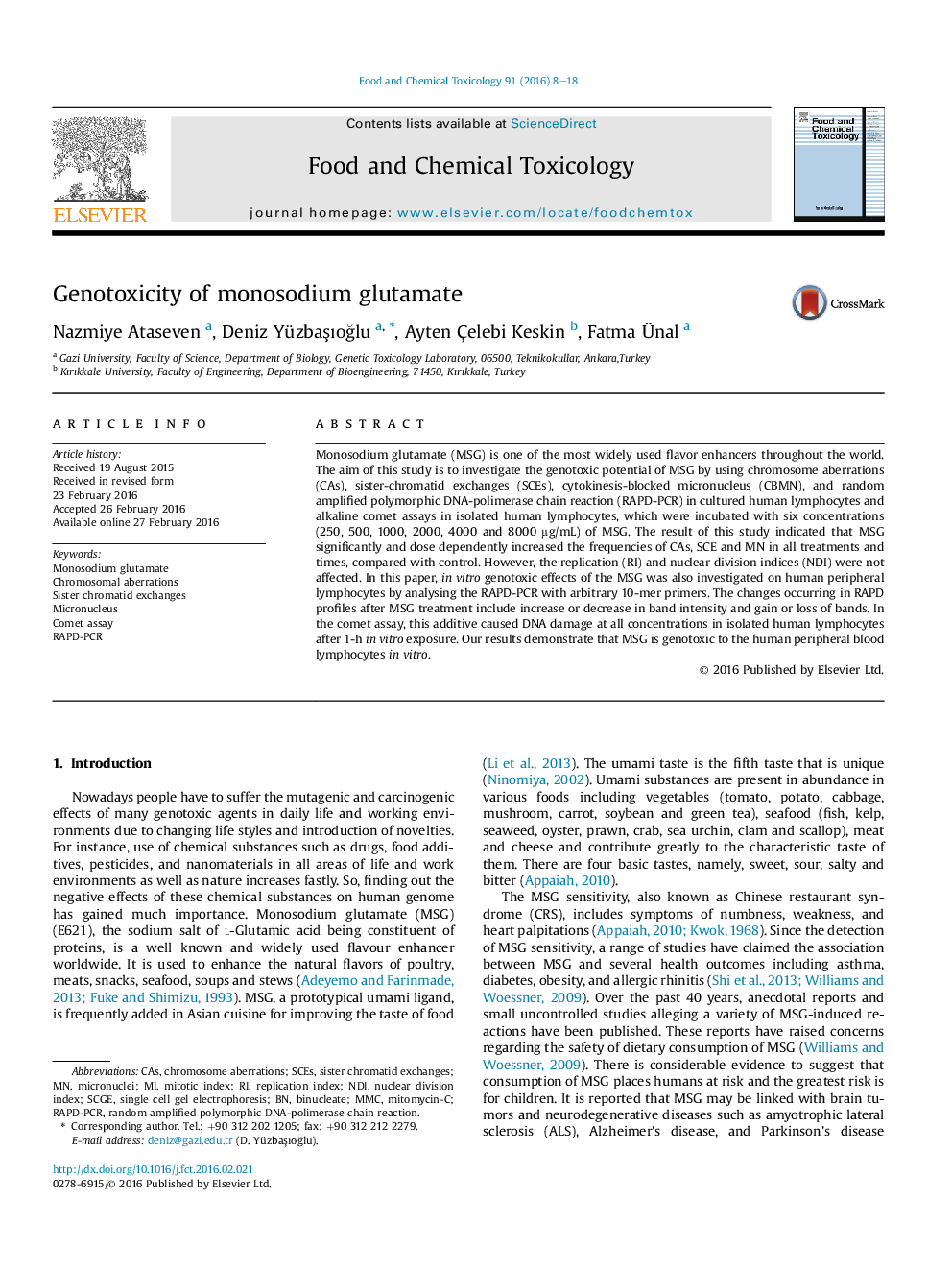| کد مقاله | کد نشریه | سال انتشار | مقاله انگلیسی | نسخه تمام متن |
|---|---|---|---|---|
| 5849397 | 1561753 | 2016 | 11 صفحه PDF | دانلود رایگان |
- The aim of this study was to evaluate the genotoxic potential of MSG.
- Five different genotoxicity tests were performed in human peripheral lymphocytes.
- The results showed that MSG have genotoxic effects on human lymphocytes in vitro.
Monosodium glutamate (MSG) is one of the most widely used flavor enhancers throughout the world. The aim of this study is to investigate the genotoxic potential of MSG by using chromosome aberrations (CAs), sister-chromatid exchanges (SCEs), cytokinesis-blocked micronucleus (CBMN), and random amplified polymorphic DNA-polimerase chain reaction (RAPD-PCR) in cultured human lymphocytes and alkaline comet assays in isolated human lymphocytes, which were incubated with six concentrations (250, 500, 1000, 2000, 4000 and 8000 μg/mL) of MSG. The result of this study indicated that MSG significantly and dose dependently increased the frequencies of CAs, SCE and MN in all treatments and times, compared with control. However, the replication (RI) and nuclear division indices (NDI) were not affected. In this paper, in vitro genotoxic effects of the MSG was also investigated on human peripheral lymphocytes by analysing the RAPD-PCR with arbitrary 10-mer primers. The changes occurring in RAPD profiles after MSG treatment include increase or decrease in band intensity and gain or loss of bands. In the comet assay, this additive caused DNA damage at all concentrations in isolated human lymphocytes after 1-h in vitro exposure. Our results demonstrate that MSG is genotoxic to the human peripheral blood lymphocytes in vitro.
Journal: Food and Chemical Toxicology - Volume 91, May 2016, Pages 8-18
